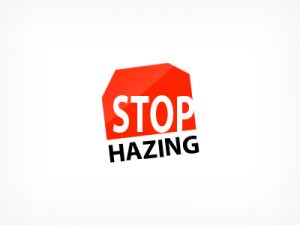Allan, colleagues provide free hazing prevention professional development opportunities

As colleges and universities continue to face uncertainty during the coronavirus pandemic, professor of higher education Elizabeth Allan and other members of the University of Maine community are supporting campus professionals nationwide this summer with free virtual office hours and a series of free webinars.
These professional development opportunities are being offered in conjunction with the StopHazing Research Lab, directed by Allan.
“We decided to host the virtual office hours to provide practitioners with more access to our research and expertise related to hazing prevention,” says Allan, who has authored or co-authored several pioneering studies on campus hazing and hazing prevention, including the first Hazing Prevention Toolkit.
“Because of the ongoing pandemic, we will use video conference technology to talk with student affairs professionals interested in learning more about data-driven and research-informed hazing prevention approaches and strategies,” Allan adds.
Depending on need, Allan says some of the topics covered during the sessions include:
- Strategies for assessing campus climate relative to hazing
- Implementing a coalition-based approach for campus hazing prevention
- Building capacity for campus hazing prevention
- Conducting a problem analysis to inform strategic planning for hazing prevention
- Evaluated strategies for strengthening knowledge and skills relative to hazing and its prevention
- Intersections between hazing, sexual violence, and other campus safety concerns
- Hazing and student well-being
- Student leadership development for hazing prevention
- Campus investigations and accountability for hazing violations
- How to strengthen institutional transparency relative to hazing
In addition to Allan, two other members of the UMaine community will offer assistance during the office hours. Lauri Sidelko, assistant dean and director of community life and a doctoral student in higher education, will provide practitioner-focused technical assistance. David Kerschner is a Ph.D. student in higher education whose research focuses on hazing and small college athletics. The University of Maine was a member of the first cohort of the Hazing Prevention Consortium.
The office hours are being offered through the end of July. There’s no cost to participate, however campus professionals are asked to sign up and indicate which topics they would like to cover in advance using an online form.
Allan and StopHazing will also provide three webinars on campus hazing and hazing prevention in late August and early September: Hazing 101 (Aug. 24); Hazing & Prevention Science (Aug. 31); and Hazing Prevention Framework (Sept. 8). Registration for these free sessions is also available online.
Contact: Casey Kelly, casey.kelly@maine.edu; Meredith Stewart, meredith@stophazing.org.
